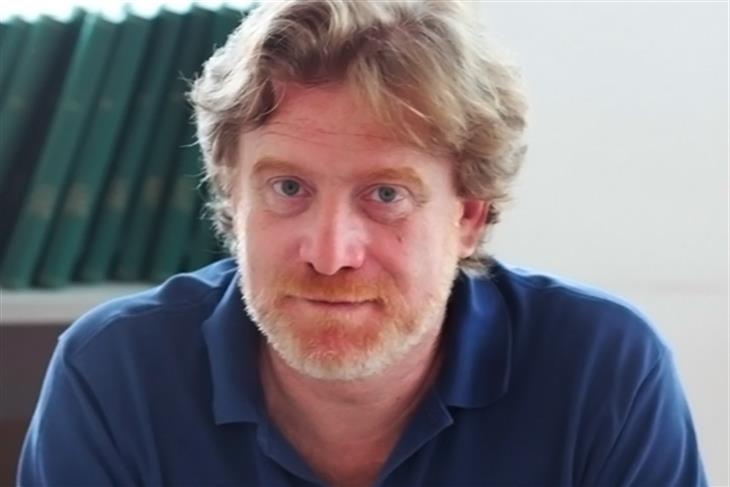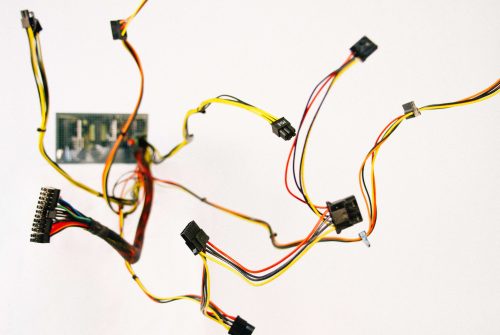The risk of technology? Complying with our will to power
13 April 2018 | Written by Luca Tiraboschi

Our contributor Luca Tiraboschi interviewed Johnny Dotti, pedagogist and professor at the Cattolica University of Milan, with whom he spoke about the social risk of technological evolution.
In previous interventions for Impactscool I always brought out the dualism between my most “geek” part, the one that makes me love regardless of every aspect of technology, and my most dubious part, which sees objectively the drift to which it can bring a “dehumanizing” technology. To deepen this last aspect I had a talk with Johnny Dotti.
Johnny is a friend. He graduated in Pedagogy and has been a social entrepreneur for many years. From 1999 to 2002 he was a managing director of the CGM cooperative group (Gino Mattarelli Consortium, the largest Italian network of social cooperation) and until 2008 he led him as president. He was also president of Welfare Italia Servizi and is a professor at the Cattolica University of Milan, where he holds the course of Techniques analysis and management of complex social phenomena. Johnny also wrote some essays on social issues.
He receives me in the oldest part of the old renovated farmhouse where he lives with other families, with whom he lives sharing experiences. I want to understand how he, deep down in the social world but with an entrepreneurial spirit, sees this progressive “intrusiveness” of technology.
You wrote “One of these rapidly expanding phenomena is the entry of humanoid robots into our daily lives. One of the many variations of the incessant and intrusive influence of technocracy in our lives, which is based on the great scientist myth that envelops everything”…tell the truth: technology scares you.
“I am afraid of any kind of absolutization, including religious absolutism, and I say this as a Catholic. Today the technical-scientific thought is a religion that claims to read all of reality and for me this is not acceptable just like religious fundamentalism. I think technology is a beautiful thing, interesting, useful, but I don’t think it can answer all the questions of man, I don’t think it is usable in all fields, I don’t think the scientific/technical method is extendable to all research of the life. I think it is very noble, that it can help us in concrete things and offer us a series of comforts, but that can not answer the question of the meaning of life. Technology, like all things of man, carries within a series of risks: it is a human product and therefore as such it must be taken with detachment and distance, because otherwise it tends to saturate the whole question of men’s meaning”.
You visited the Italian Institute of Technology in Genoa and you talked with the director Roberto Cingolani. What positively impressed you and what scared you?
“This is the time of techno-science. I practically visited a modern monastery, as if a Benedictine monastery had been visited in the 1600s, with specific rites and liturgies that revolve around a myth that is precisely the technical-scientific one. Some scientists have explained to me that their research was to find a basic element to use for disparate purposes (such as simulating human skin). In practice, it is a search similar to that of the philosopher’s stone of the Middle Ages. We are almost at the spiritualization of matter. The risk I see in these cases is to focus on only one aspect of man, which isn’t only body (matter) but also mind and spirit. However, I have breathed a positive atmosphere with young people from all over the world concentrated with a common good goal.”
There you saw also robots, what opinion do you have about it?
“The concrete interest in the robot has channelled their development on two opposite fields: one is the destructive one, they can, for example, replace the infantry on the battlefield, but the same robot, programmed in another way, can be used for assistance to the elderly. In general, even in peaceful use, the limit I see is the pure reduction of man to function: efficient function, effective function, punctual function. The robot assists the human being in his functions, in bodily needs, in walking, in eating. This is a good thing, man is also “functions”, but the solution can’t be to concentrate only on maximizing the functional aspects, otherwise one arrives at the inhuman. The human component must continue to be predominant: for example, a robot is useful in a housing context in which the elderly help each other and the machine helps by integrating specific tasks, but must not completely replace sociality, relationship. If you ask me if the robot is the single answer to each of those elders, I say no”.
You’re talking about old people and robots, but technology is helping us lengthen our lives. And this duration could potentially be infinite.
“I’ll tell you in almost theological terms: technology can’t make us jump the passage of death, I find that if you take away the death to the man, you will remove the man. We are creatures and for this we have a great value, that of being creators too. But we participate in creation within the limit of existence. Technology sees a linear progression of time (past-present-future) but I, for example, think of the eternal, which is not the future to infinity but is the eternal time of an instant to infinity. The concreteness of technology goes well, but we would need a little more meditative technique, be silent, listen to your body: I think these things are worth 100 devices that help you in your physical functions. We can strengthen as long as we want our outer dimensions, this is fine, but we must go hand in hand with the strengthening of the inner dimensions. We need a deep dialogue between analytical, computer science, algorithmic science and meditation, spirituality, faith.”
But man has always wanted to improve and technology, which is produced by man, has made leaps forward very important!
“We are certainly will to power. Starting from Cartesio, passing through the Enlightenment and coming to Nietzsche, this expansive idea belongs to us. But let us not forget that we are also fragility, weakness, poverty, need. My point of view is that the will to power doesn’t replace this other human dimension. St. Paul says that “When I am weak, it is then that I am strong”, St. Matthew writes in the Gospel “Blessed are the poor in spirit” and it isn’t just a Catholic vision. Many other religions and even many lay people celebrate the limitation of the human being. My dimension of fragility is also a gift, it isn’t just an aspect that must be repaired through techniques that extend the will to power. The will to power is just a piece of me, the other piece of me (which has human dignity) is this poverty. Even now we are talking through our poverty: your question and my answer, my question and your answer. It is our mutual inadequacy that makes us meet. The principle of solidarity does not arise from the meeting of powerful people, but from the relationship between people who feel weak. Love is a gesture of tenderness that takes place through weakness.”
So, we risk trending technology only to develop our will to power, forgetting about the rest?
“I don’t believe that any machine can be human. When I hear about the superman, the empowerment of man, I think we are focusing precisely on that aspect of man that excludes the limit, the weakness. Imagine the poetic intuition that man could have in a moment of melancholy and total sadness: a computer could never have this. Because that thing is not a calculation, this thing is another “logos”. A man, sometimes, does things out of sheer madness, there is no reason, there is no calculation: there is a pure abandonment, both for good and for bad. This comes from weakness, fragility, creatural exposure to death. Technology, by its nature, working on the will to power, tends to acceleration: a thing is better only because it’s made faster. But for many other aspects, specific to the human being, we need a time that you can not calculate … and that’s right. For example, boredom can’t be predicted by technology, but it is a fundamental component of a certain type of thinking. The wait, the inability to express a question, are fundamental aspects. Think of the art: technology can graphically reproduce incredible things, but it will never have the same intuitions of an artist… but not because of him but because they are not variables linked either to logic, or to the calculation of probabilities, neither to the quantity of information nor to the expansion of power but are connected to the other human part that is not inside the “logos” but is inside the myth.”
But technology brings clear positive effects on people’s lives.
“Of course, I do not deny it and I recognize it, but can we establish that there are limits? Or, since that thing can be done, then we have to do it? This is the big theme for me and I say no, what you can do mustn’t necessarily be done. If our will to power chokes the other part of us, the weak part, the risks are very high. Jung said: you see your bright part, but are you able to coexist even with your shadow? I am also my contradictions and this dualism also emerges in collective terms. Technology is not exempt on it. For example: currently 90% of financial transactions are made by algorithms and these transactions manage state debts, savings of families, assets … so lifes. Financial algorithms makes decisions based on criteria that are certainly effective and efficient, but it is not clear if that will be good for the families. If I remove finance from everything from which it derives (production, work, sociability, use of resources) and I consider it a behaviour that is only functional to generate a flow of money, I will create a real risk for people. For that reason I can’t imagine that things can be produced, governed or verified only through technological mechanisms: it isn’t possible. When that method becomes the truth, the reality or the certainty for everything…I stop.”
But how do we set the limits?
“There is still no conscience on these issues. Simplifying to the maximum, if you think about the history of humanity, in a first phase it was worth the religious power, then the political and now the technological one. Man relies totally on this space, hoping in a better future, up to saturate it: religious absolutism has provoked terrible wars and persecutions because theology had been used to crush any human dimension. The same applies to political ideologies: just think of Nazism. Now we risk an equally risky absolutism with technology. Coming back to your question, I answer you that there is a problem of educational system: the students must be educated to deal with other parts of themselves, to know how to enhance and harmonize with the will to power. If we leave the current educational system, understood in a general sense and not strictly scholastic, the ending will be tragic, because there are no human conditions to be critical of this new myth that in going to saturate everything. There would need to be educational forms oriented towards silence and a direct relationship with nature. The students need more sanguine and real experiences with their body, starting from 5/6 years. We must go back to having a habit of asking ourselves questions.”
My geek soul came out quite shaken by this talk. I recognize the pleasure of my will to power in everyday actions: thanks to Amazon I’m so powerful that every desire to buy is fulfilled in a flash, thanks to Google every question I find has a quick answer, thanks to Facebook I’m instantly aware of what happens in the life of my friends.
Who, like me, loves technology and recognizes its positive impacts on mankind, has to consider even the riskiest aspects.
As usual it is a question of choices: let’s talk, discuss, choose … #thefutureisopensource





